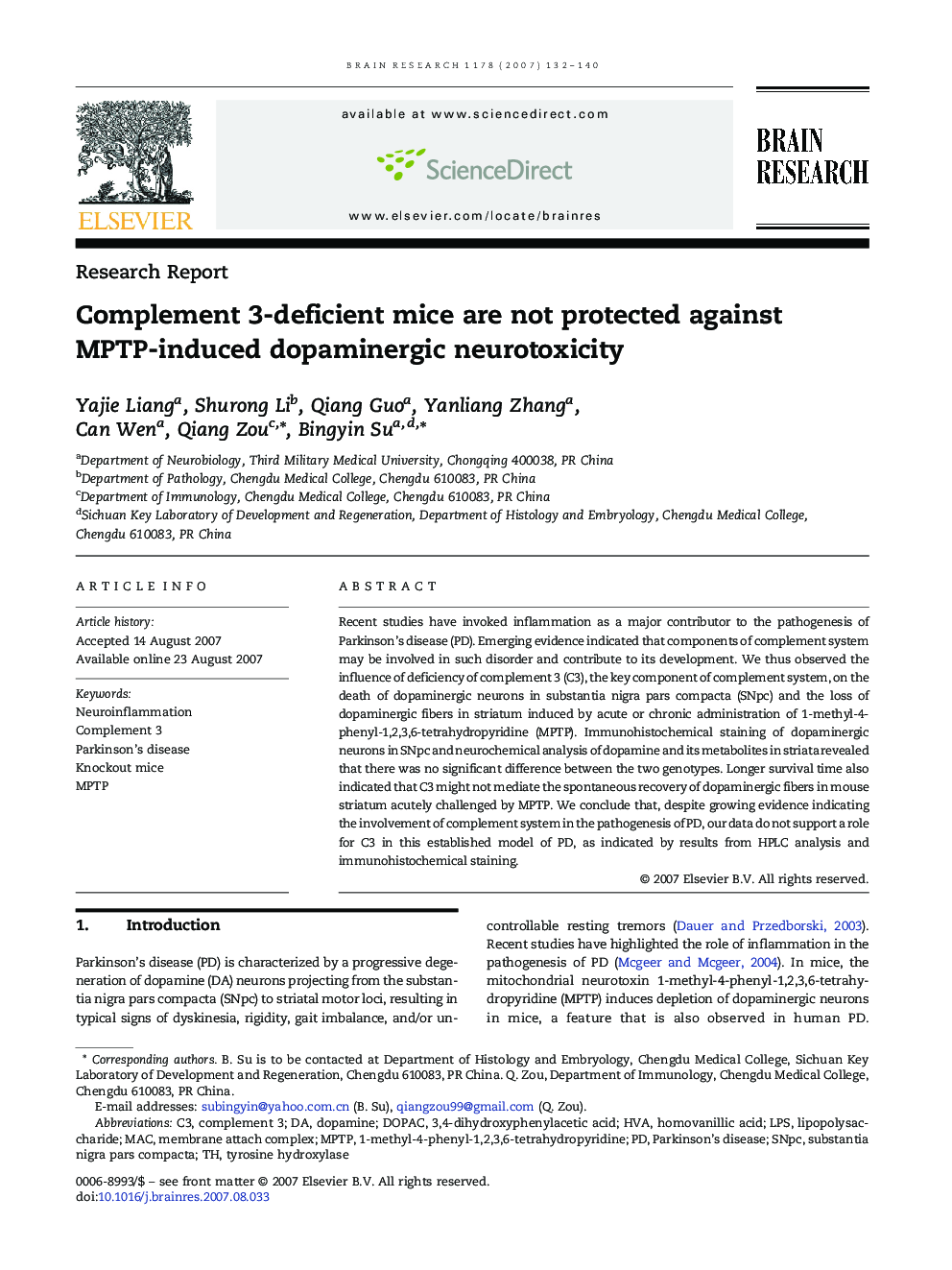| Article ID | Journal | Published Year | Pages | File Type |
|---|---|---|---|---|
| 4330496 | Brain Research | 2007 | 9 Pages |
Recent studies have invoked inflammation as a major contributor to the pathogenesis of Parkinson's disease (PD). Emerging evidence indicated that components of complement system may be involved in such disorder and contribute to its development. We thus observed the influence of deficiency of complement 3 (C3), the key component of complement system, on the death of dopaminergic neurons in substantia nigra pars compacta (SNpc) and the loss of dopaminergic fibers in striatum induced by acute or chronic administration of 1-methyl-4-phenyl-1,2,3,6-tetrahydropyridine (MPTP). Immunohistochemical staining of dopaminergic neurons in SNpc and neurochemical analysis of dopamine and its metabolites in striata revealed that there was no significant difference between the two genotypes. Longer survival time also indicated that C3 might not mediate the spontaneous recovery of dopaminergic fibers in mouse striatum acutely challenged by MPTP. We conclude that, despite growing evidence indicating the involvement of complement system in the pathogenesis of PD, our data do not support a role for C3 in this established model of PD, as indicated by results from HPLC analysis and immunohistochemical staining.
